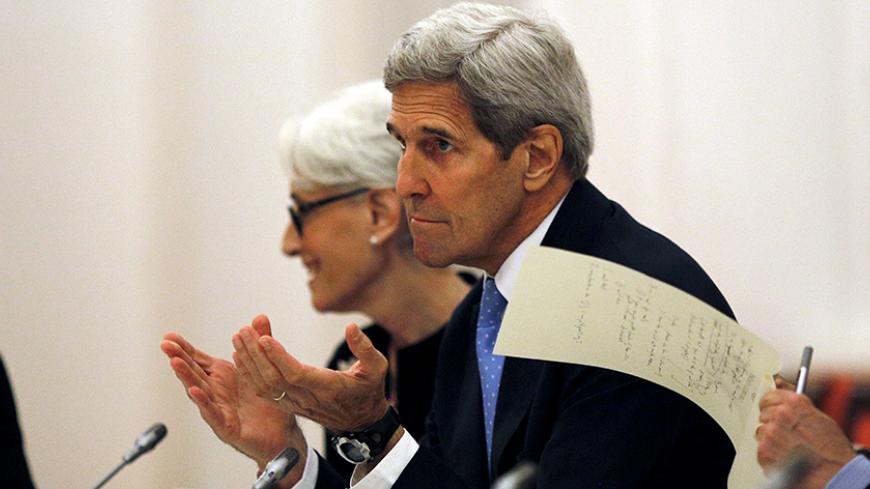As journalists were preparing July 9 for the possible good news that a nuclear deal had been reached, three foreign ministers turned the situation upside down. “The last 100 meters of the marathon are the hardest,” said French Foreign Minister Laurent Fabius. US Secretary of State John Kerry made it clear there was progress but insisted that the talks were “not open-ended,” adding that US President Barack Obama told him his negotiating team could not stay there forever. Iranian Foreign Minister Mohammad Javad Zarif tweeted, “We're working hard, but not rushed, to get the job done. Mark my words: You can't change horses in the middle of a stream.”
As the last sentence by Zarif stirred controversy, reporters started searching for the right meaning of the idiom the Iranian minister used. The common understanding was that something important changed in the middle of the talks, something that risks the whole process. A senior Iranian source told Al-Monitor, “What happened is that the Western parties have been shifting and hardening positions since Wednesday [July 8] night.” He added, “The main problem was that they needed much [more] time to negotiate among themselves than negotiating with Iran, they had several meetings together to agree on their red lines, their red lines differ from one country to another, and they want Iran to take into consideration their differences.”



